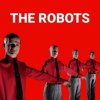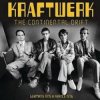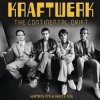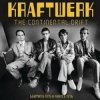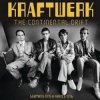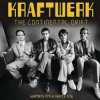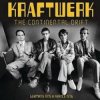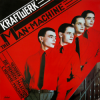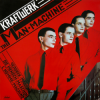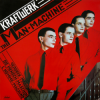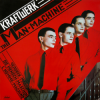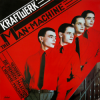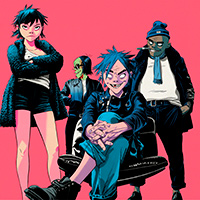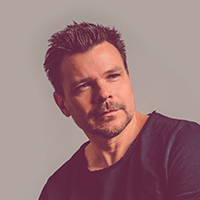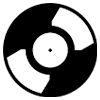

Kraftwerk (“Power Station”) — a band from Düsseldorf founded by Ralf Hütter and Florian Schneider in 1970. The group turned synthesizers, sequencers, vocoders, and electronic drums into an independent language of pop culture, laying the foundation for synth-pop, techno, house, ambient, electro, and early hip-hop.
Timeline and Milestones
- 1968–1969 — Hütter and Schneider perform in the experimental group Organisation; release LP Tone Float (RCA).
- 1970 — Establishment of their own studio Kling Klang in Düsseldorf; the beginning of Kraftwerk.
- 1970–1973 — Early instrumental albums: Kraftwerk 1, Kraftwerk 2, Ralf & Florian; transition from Kraut-experimentalism to structured electronic systems.
- 1974 — Breakthrough with Autobahn (title track 22:43). The song enters the Billboard Hot 100 (Top 30 US) and UK Top 20.
- 1975 — Concept album Radio-Activity: themes of radio, communication, and atomic energy; first bilingual versions (DE/EN).
- 1977 — Trans-Europe Express: industrial Europe, rhythmic geometry — key influence on electro and hip-hop.
- 1978 — The Man-Machine: crystallized minimalism and the “robot persona.”
- 1981 — Computer World: a pre-Internet manifesto of the “data society.”
- 1982 — Reissue single “The Model/Computer Love” reaches #1 UK Singles Chart.
- 1983 — Single Tour de France: musique concrète/electro experiment — seed for the 2003 album.
- 1986 — Electric Café (remastered in 2009 as Techno Pop): computer vocoder-pop of the MIDI era.
- 1991 — The Mix: re-recorded classics with new sequences/sound (90s live setup).
- 2003 — Tour de France Soundtracks: breathing, cadence, body mechanics — acclaimed late masterpiece.
- 2005 — Minimum-Maximum live album captures the “four-console” era.
- 2009 — Box set The Catalogue / Der Katalog: definitive remasters of their core albums.
- 2012–2015 — Museum retrospectives The Catalogue 1–8 (MoMA NYC, Tate Modern, K20 Düsseldorf, etc.): 3D audiovisual performances of each album.
- 2014 — Grammy Lifetime Achievement Award.
- 2017 — 3-D The Catalogue: ultimate live audio/visual edition; won Grammy 2018 for Best Dance/Electronic Album.
- 2020 — Passing of Florian Schneider (1947–2020), co-founder and innovator.
- 2021 — Inducted into the Rock & Roll Hall of Fame (Early Influence).
- 2022–2024 — Continued 3D tours across Europe, America, and Asia; updated visuals and setlists. Ralf Hütter remains the sole founding member.
Sound, Technology, and Concept
- Kling Klang — more than a studio, a “laboratory”: custom sequencers, routers, rhythm computers, MIDI logistics.
- Key Instruments: Minimoog, ARP Odyssey, EMS Synthi AKS, modular Moog/EMS systems, later digital workstations and real-time rendering.
- Vocoders: signature robotic voice processing (notably Sennheiser VSM 201).
- Electronic drums: self-built pads/triggers — one of the earliest all-electronic drum setups in pop.
- Live principle: system performed in real time — synchronized yet modulated, visual graphics as an integral instrument.
Musical Language and Aesthetics
- Modernism and Minimalism: repetition, geometric rhythm, functional harmony; “The Man-Machine” as utopia and irony.
- Thematic albums: roads (Autobahn), radio/atoms (Radio-Activity), Europe/transport (Trans-Europe Express), cyber identity (The Man-Machine), digital society (Computer World).
- Bilingualism: German/English editions — a deliberate pan-European language strategy.
- Visual identity: robotic doubles, lab uniforms, architectural stage symmetry — visuals as meaning, not decor.
Discography Highlights
Studio albums: from Kraftwerk 1 (1970) to Tour de France Soundtracks (2003).
Live & reworks: The Mix (1991), Minimum-Maximum (2005), 3-D The Catalogue (2017).
Signature tracks: “Autobahn,” “Radioactivity,” “Trans-Europe Express,” “The Model,” “Tour de France,” “Expo 2000.”
Influence and Legacy
- Electro/Hip-Hop: Afrika Bambaataa’s “Planet Rock” (1982) sampled Trans-Europe Express — birth of electro-hip-hop.
- Detroit Techno: Juan Atkins, Derrick May, Kevin Saunderson cite Kraftwerk as core inspiration.
- Synth-pop / New Wave: Depeche Mode, New Order, OMD, Pet Shop Boys — direct lineage.
- Modern artists: Coldplay (“Talk”), Daft Punk, The Chemical Brothers, Underworld — heirs of rhythmic minimalism.
Why Their Music is Called “Prophetic”
- Computer World (1981) predicted cashless payments, data surveillance, and digital networking decades ahead.
- The Man-Machine (1978) defined cyber identity long before social media.
- Trans-Europe Express and Autobahn anticipated sonic urbanism and motion design in music.
Conclusion
Kraftwerk are not just a band — they are the foundation of the digital age in music. They proved that electronics can be not cold machinery, but a new art form where man and machine merge. Each album is a manifesto of its era — from Autobahn’s industrial highways to Computer World’s data networks.
Unlike most artists, Kraftwerk built an entire ecosystem — the Kling Klang studio — where sound was engineered like architecture. Their precision, minimalism, and discipline defined the modern musician-engineer archetype.
From Depeche Mode and Daft Punk to Coldplay and Radiohead, their influence spans genres and generations. Even digital instruments and live show technology trace back to their innovations.
Half a century after Autobahn, Kraftwerk remain a living symbol of technological avant-garde. Their 3D shows turn music into architecture, their sound timelessly modern.
If electricity is the metaphor of civilization, then Kraftwerk is its beating heart — the power station that still energizes the world of music.
